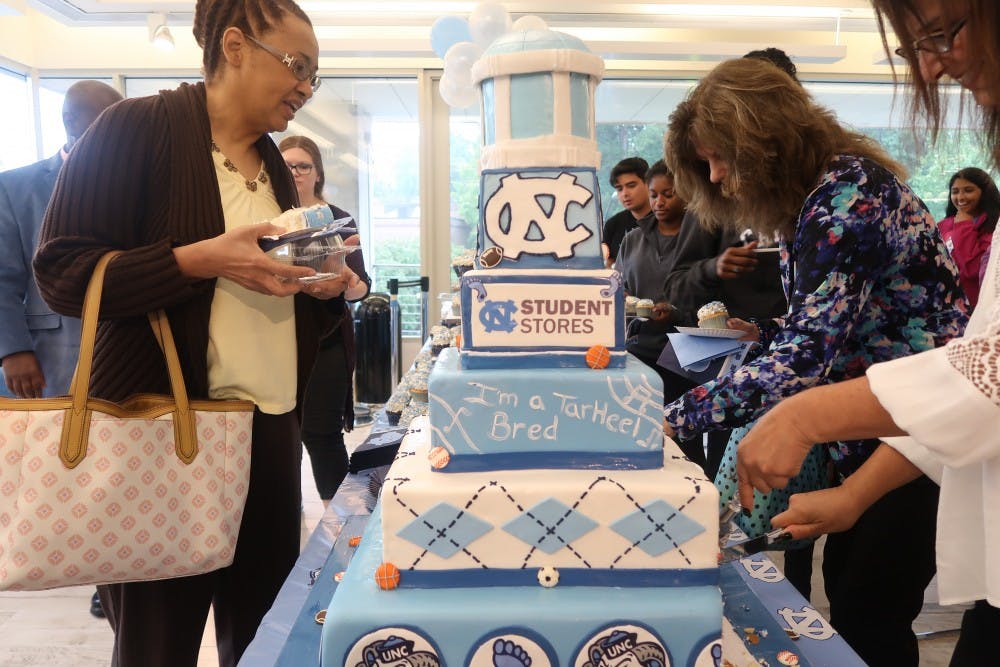Correction: An original version of the article incorrectly stated Paul Maloney's position at Barnes & Nobel College. The story was updated with the correct information.
UNC celebrated the grand re-opening of the newly designed student stores with a ribbon-cutting event on Tuesday, complete with a colossal, multi-layer cake for the campus community.
The re-opening marks the end of the $3.8 million renovation, transforming the store into a communal hot spot. Lloyd Kramer, UNC history professor and director of Carolina Public Humanities, said he envisions the space to be a cradle of intellectual vitality, where ideas among community members and books clash together.
“It’s already becoming a buzzing center of student and faculty activity," Kramer said. "Every time I come through here, there are just lots of people sitting at tables and drinking coffee, talking about the meaning of life and why we are here – all of the things that are supposed to happen at a university.”
As part of a 10-year agreement, Barnes & Noble invested $3.8 million in the Student Stores renovations. Brad Ives, associate vice chancellor for campus enterprises, said sales are on track to exceed the minimum payment guarantee to the University, which is $3 million for the first two years.
Additionally, UNC predicts the new Student Stores will quadruple the original's net scholarship contribution, which was $400,000 annually.
Paul Maloney, the vice president, stores, of Barnes & Noble College, spoke about the company’s efforts to promote student input when deciding how the new store will operate. He specifically mentioned working with student groups to decide on the clothing collection and the rearrangement of previously scattered shops on the third floor.
“Having a lot of students that work in the store keeps us a vibrant and young company,” Maloney said. “Most of our executives in the company all started as student workers, so 80 percent of our upper management all started at different schools at one time or another.”
However, the renovation is not just a operating change, but part of a larger effort to boost revenues that fund affordable education.




